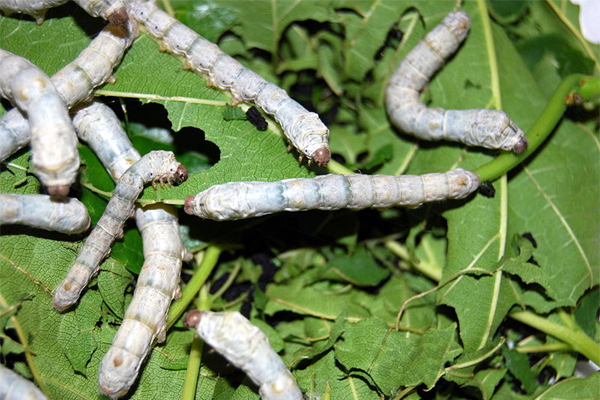



|
Tweet
Pin
It
|
The word 'Sericulture' is derived from the Greek word 'Sericos' meaning 'Silk' and the English word 'Culture' meaning 'Rearing'. Sericulture is the art and technology of raising silk worms for production of raw silk yarn. Sericulture is a farm based, labour intensive and commercially attractive economic activity falling under the cottage and small scale sector. As a cottage industry, it provides ample work for the women in rural areas. This agro based industry playing an eminent role in the rural economy of India, is not limited to just worms, but includes all activities related to them, like mulberry cultivation and even post-cocoon technology. It requires both technical know-how as well as specialization. Innovative researches have turned sericulture into an industry and now it has become a major cash crop of the country. The sericulture industry is unique for more than one reasons. It is based on agricultural output viz., cocoons and cottage based labour intensive in nature.
Sericulture refers to the conscious mass-scale rearing of silk producing organisms to obtain silk. Mulberry Sericulture involves the cultivation of mulberry to produce leaf rearing of silkworm to convert leaf to the cocoon, reeling of the cocoon to obtain silk yarn and weaving to convert the yarn to Fabric. The industry comprises of reeling, silk preparatory and weaving, silk knitting, silk wet and processing consisting of degumming, dyeing, printing and finishing besides garment manufacturing. China and Japan were the two main producers of silk yarn, together producing over 50 per cent of the total world production each year but now Japan has been relegated to the third position ever since India has doubled its production of silk. The trends in international silk production suggests that sericulture has better prospects for growth in the developing countries rather than in the developed countries. The principle silk consuming countries are India, USA, Canada, Germany, France, Italy, Denmark, Sweden, Netherlands, Switzerland, Japan, Austria and Australia. India is home to a vast variety of silk because of diversity of silk moths. Our country has gained the unique distinction of being the producer of all the five commercially traded varieties of silks namely mulberry, tropical tasar, oak tasar, eri and muga. Among the Silk Producing Countries India Tops in the Production of Tropical Tasar and Eri Silk.
Socio-economic studies have shown that sericulture which needs less investment, small land holdings and higher returns can provide best career options to job seekers and entrepreneurs. The export of silk products has shown a steady growth and export earnings have also increased during the last decade. Being one of the largest exporter of silk, chances for boost in the economic field is comparatively high for our country, which in turn give new openings to the job seekers.
 Tags
farm based career
,
industry based career
Find it Useful ? Help Others by Sharing Online
Comments and Discussions |
Related
Career Options
|
|||
|
|